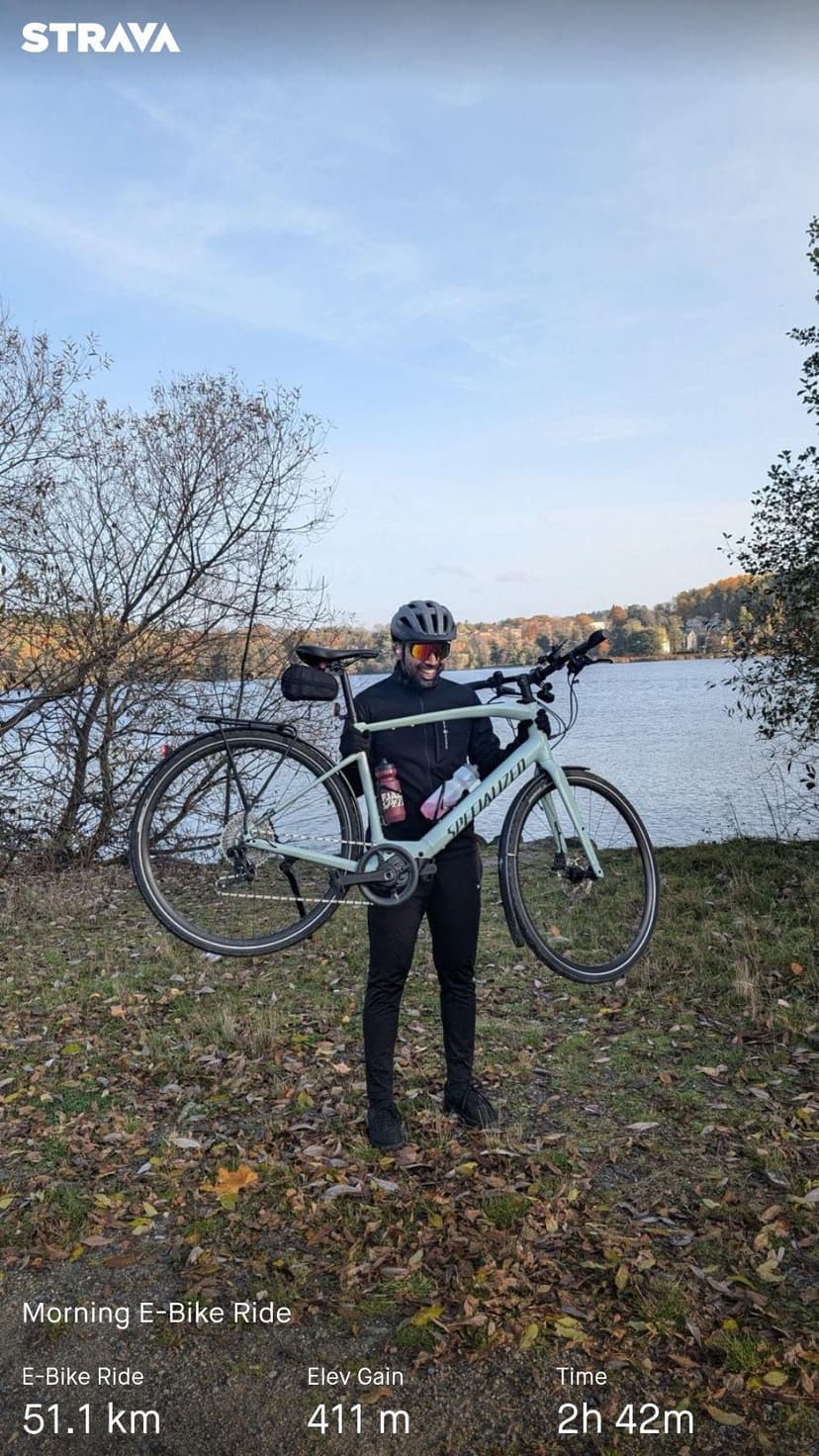Living in Stockholm has changed me in ways I never expected. Chief among them, it has reconnected me with cycling—a love I first discovered as a child. I learned to ride a bike at eight on a friend’s old, battered bike. He was eager for me to try, and our shared excitement turned every wobble into an adventure. Of course, I fell. A lot. One fall even landed me in the hospital with a badly scraped knee. But as I lay there, bandaged up, all I could think about was getting back on that bike.
It wasn’t the pain or the fear of falling again that stayed with me; it was the pull—the feeling of freedom, the wind on my face, the thrill of motion, and the social aspect of it. The mix of everything captured me so deeply, even then. As I grew into adult life, the same passion withered away. I don't know why I leave things I used to enjoy.
Why am I writing about cycling today? Why would you read it?
The gist I want to share is my story, and I hope you can relate to it. The purpose of this post would be fully accomplished if it motivates you enough to get back on the saddle again ☺️.
I started my CBT therapy at the start of 2024 as I was having problems with my focus. During the process, one of the things I stumbled upon was how I gave up my own hobbies to accommodate others. I am not a people pleaser, but it happened to me subtly as I moved around a lot since childhood. What my brain says to me: Nothing is permanent; so why stick to it? For example, if I am renting a place and want a sofa, literally my brain responds: you will move away from here, so there is no point in buying 😔. Completely disregarding the fact that I need that sofa. I want to have a better life!
It translates everywhere in my life. And so instead of pursuing things for long, I get over them quite early after achieving an above-average level.
Also, above average in my brain is so misguided. Anyways, I don't want to delve more into my struggling psychology, but according to science,
which I believe in, I can overcome this fickle-mindedness by rewiring my brain to like things again that it used to like before. Now the hard
part starts. As an adult, it is difficult to find what you like because we have so many questions but almost no answers.
So even stumbling upon cycling was tough for me. In my case, I have accumulated several hobbies while being nomadic, which I can jump upon, like dancing, painting, badminton, hiking, cricket, trading, etc. I really got exhausted with analysis paralysis, which was running in my neurons all the time, trying to optimize things for me. The problem is that as a working adult, I don't have time for more than one or two activities, and so after several days of fleeting thoughts and fighting with them, I ended up with cycling 🚴. Several things landed in its favor.
- I wanted a hobby that I could also do alone if needed.
- I am quite outdoorsy and enjoy nature, so if I can mix it with my activity, it would be an added bonus.
- I want to engage my brain at a level where I don't have time to think about other things. With a certain speed, I can achieve this.
- I live in Stockholm, which has such a conducive environment for cycling.
Also, the timing was so right for me. It was the month of May when my therapy was ending, and with lessons learned, I had to execute the plan. I looked for a cycle that I wanted when I first saw it a year ago, and it was on a discount. I bought it immediately, and my journey started with the start of summer. Today, look at me smiling while lifting my bike, which I love so much, after completing 2000 KMs of mileage.

I have written about why Stockholm is a great city for cycling and about my Specialized cycle here.